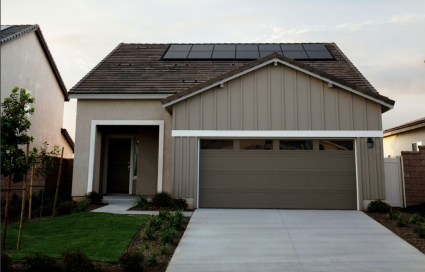By the standards of the contemporary American political system, proposals to reform the U.S. housing finance system moved relatively far through the legislative process in 2013 and 2014, with different bills receiving positive votes in House and Senate committees before stalling. Prospects for housing finance reform faded in 2015, with Fannie Mae and Freddie Mac—the two firms that purchase mortgages and bundle them into securities with a guarantee—remaining in government control with an explicit government backstop. While it is difficult to say when (or even whether) the U.S. political system will again focus on housing finance reform, the debate over the proposals considered in 2013 and 2014 will inform future efforts. This paper reviews the legislative proposals for housing finance reform, highlighting the common and different features of these proposals and analyzing their economic implications. The paper concludes by looking at the political obstacles facing legislative efforts and discussing the ways in which housing finance is evolving in the absence of legislation.
Related Content
-

Accelerating a Green Recovery for Los Angeles: Pathways for Investing in Building Retrofits and Green Affordable Housing Development
Please read this summary of the virtual roundtable the Institute hosted with Los Angeles Mayor Eric Garcetti that explored how to facilitate a "green recovery" during the COVID-19 induced economic downturn while also advancing the goals...Read Report -
Toward a New Secondary Mortgage Market
There is a simple and sensible way to finally achieve comprehensive housing finance reform in the U.S.. The approach proposed in this paper is to amend the charters of Ginnie Mae, Fannie Mae and Freddie Mac, and the Federal Housing Finance...Read Report11 11 11Eric Kaplan, Ed DeMarco, and Michael Bright -

Financing Urban Resiliency: Innovative Approaches to Deliver Affordable Housing in Chicago
In many US cities, concentrated poverty and chronic disinvestment have resulted in wide social, economic, and geographic disparities. More recently, these same city centers are being revitalized – and as rents outpace wage growth, quality...Read Report -
Housing Finance Reform: Step-by-Step
Remarks as prepared for delivery to the Goldman Sachs Housing Finance ConferenceRead Report -

Financing Urban Resiliency Investing in Complete Communities in the London City Region
By 2050, 68 percent of the world’s population will be living in cities, more than double the percentage reported in 1950. Urban growth has risen sharply since 2000, and many cities, London among them, are under extreme pressure to improve...Read Report 11
11
Caitlin MacLean, Yvette Edidin, and Maressa Brennan
11
11
Caitlin MacLean, Yvette Edidin, and Maressa Brennan -
Bringing Housing Finance Reform over the Finish Line
The housing finance reform debate has regained momentum, as those involved aim to move towards bipartisan housing finance system legislation in 2018. While different approaches have evolved from the discourse about potential reforms of the...Read Report11 11 11 11Eric Kaplan, Michael A. Stegman, Phillip Swagel, and Theodore W. Tozer -
Milken Institute Mobilizes for Next Phase of Housing Finance Reform
WASHINGTON, DC—The Milken Institute is mobilizing efforts for the next phase of housing finance reform as policymakers work through the complexities of building a sustainable system. Today, the Institute announced a new policy team with...Read Article -

A Primer and Perspective on Ginnie Mae
Several housing finance reform models, including the Treasury and HUD plans recently issued at the direction of the White House, support an expanded role for Ginnie Mae in the future housing finance system. Understanding Ginnie Mae’s...Read Report -
Toward Affordable Housing in Israel
Dramatic price increases in Israel’s housing market prior to 2013 had outpaced the rise in average household income, leaving working families with limited options. To help generate possible solutions, the Milken Institute convened...Read Report -
Milken Institute Responds to Federal Housing Finance Reform Plans
Housing finance program director Eric Kaplan says "The ramifications of these plans ... cannot be overstated." WASHINGTON, September 5, 2019—The U.S. Department of the Treasury (Treasury) and Department of Housing and Urban Development (HUD...Read Article -
Rebuilding Housing Finance: Thoughts from California on Federal Reform
Both in the foreclosure crisis and in the recent recovery, California has represented a bellwether of the national housing market. The housing crisis that began in 2007 caused considerable economic damage in California and across the...Read ReportImage
John Schellhase
Director, Environmental and Social Innovation team, Milken Institute Strategic PhilanthropyJohn Schellhase is a director on the Environmental and Social Innovation team at Milken Institute Strategic Philanthropy, where his work focuses on social impact philanthropy. As part of his work, Schellhase contributes to and manages projects related to strengthening corporate philanthropy and operating innovation competitions to advance the Sustainable Development Goals. -

Financial Innovations for Housing: After the Meltdown
From the initial stages of the meltdown in subprime home loans to the government’s relief programs, the turmoil in the U.S. financial sector has sent shock waves throughout the global economic arena. Today, federal and state governments...Read Report